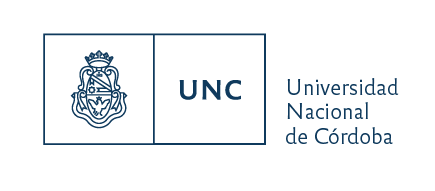| dc.contributor.author | Budde, Carlos Esteban | |
| dc.contributor.author | D'Argenio, Pedro Ruben | |
| dc.contributor.author | Hermanns, Holger | |
| dc.date.accessioned | 2022-07-14T15:26:13Z | |
| dc.date.issued | 2015 | |
| dc.identifier.uri | http://hdl.handle.net/11086/27279 | |
| dc.description.abstract | Probabilistic model checking is a powerful tool for analysing probabilistic systems but it can only be efficiently applied to Markov models. Monte Carlo simulation provides an alternative for the generality of stochastic processes, but becomes infeasible if the value to estimate depends on the occurrence of rare events. To combat this problem, intelligent simulation strategies exist to lower the estimation variance and hence reduce the simulation time. Importance splitting is one such technique, but requires a guiding function typically defined in an ad hoc fashion by an expert in the field. We present an automatic derivation of the importance function from the model description. A prototypical tool was developed and tested on several Markov models, compared to analytically and numerically calculated results and to results of typical ad hoc importance functions, showing the feasibility and efficiency of this approach. The technique is easily adapted to general models like GSMPs. | en |
| dc.format.medium | Impreso; Electrónico y/o Digital | |
| dc.language.iso | eng | es |
| dc.rights | Attribution-NonCommercial-NoDerivatives 4.0 International | * |
| dc.rights | restrictedAccess | |
| dc.rights.uri | http://creativecommons.org/licenses/by-nc-nd/4.0/ | * |
| dc.source | ISSN: 0302-9743 | |
| dc.subject | Rare event | en |
| dc.subject | Goal state | en |
| dc.subject | Importance sampling | en |
| dc.subject | Importance function | en |
| dc.subject | Tandem queue | |
| dc.title | Rare event simulation with fully automated Importance splitting | en |
| dc.type | article | es |
| dc.description.version | publishedVersion | es |
| dc.description.fil | Fil: Budde, Carlos Esteban. Universidad Nacional de Córdoba. Facultad de Matemática, Astronomía y Física; Argentina. | es |
| dc.description.fil | Fil: Budde, Carlos Esteban. Consejo Nacional de Investigaciones Científicas y Técnicas; Argentina. | es |
| dc.description.fil | Fil: D'Argenio, Pedro Ruben. Universidad Nacional de Córdoba. Facultad de Matemática, Astronomía y Física; Argentina. | es |
| dc.description.fil | Fil: D'Argenio, Pedro Ruben. Consejo Nacional de Investigaciones Científicas y Técnicas; Argentina. | es |
| dc.description.fil | Fil: Hermanns, Holger. Universität des Saarlandes. Fakultät für Mathematik und Informatik; Alemania. | es |
| dc.journal.country | Alemania | es |
| dc.journal.editorial | Springer | es |
| dc.journal.pagination | 275-290 | es |
| dc.journal.referato | Con referato | |
| dc.journal.title | Lecture Notes in Computer Science | en |
| dc.journal.volume | 9272 | es |
| dc.description.field | Ciencias de la Computación | |
| dc.identifier.url | https://doi.org/10.1007/978-3-319-23267-6_18 | |
| dc.identifier.doi | https://doi.org/10.1007/978-3-319-23267-6_18 | |





